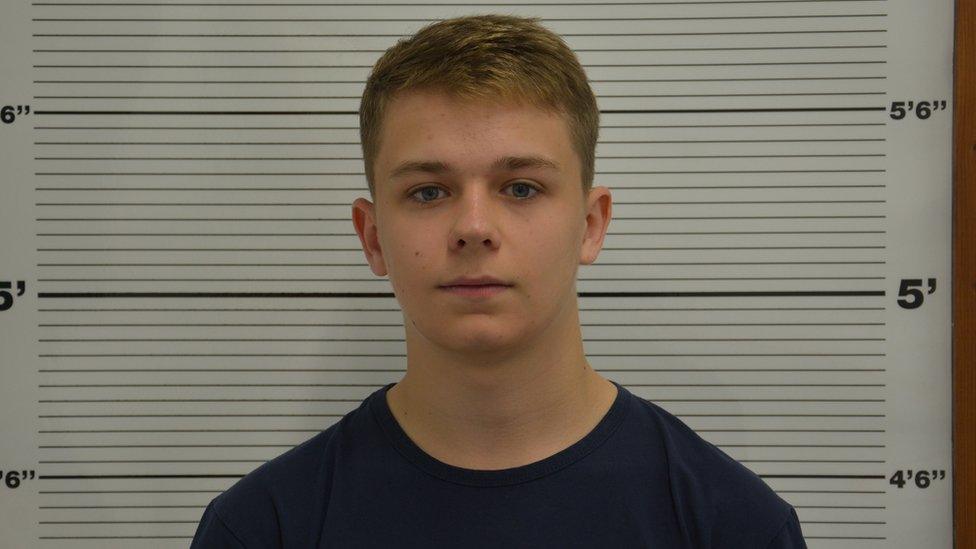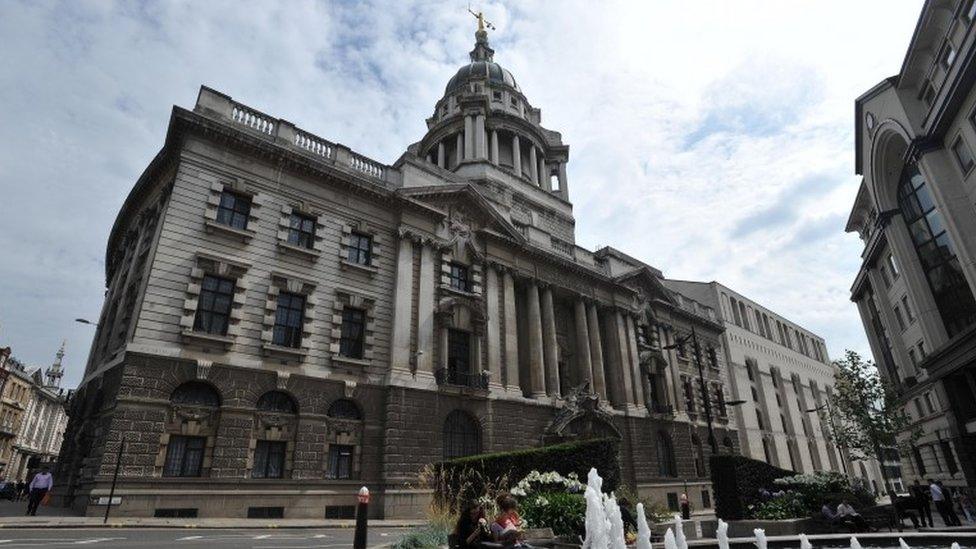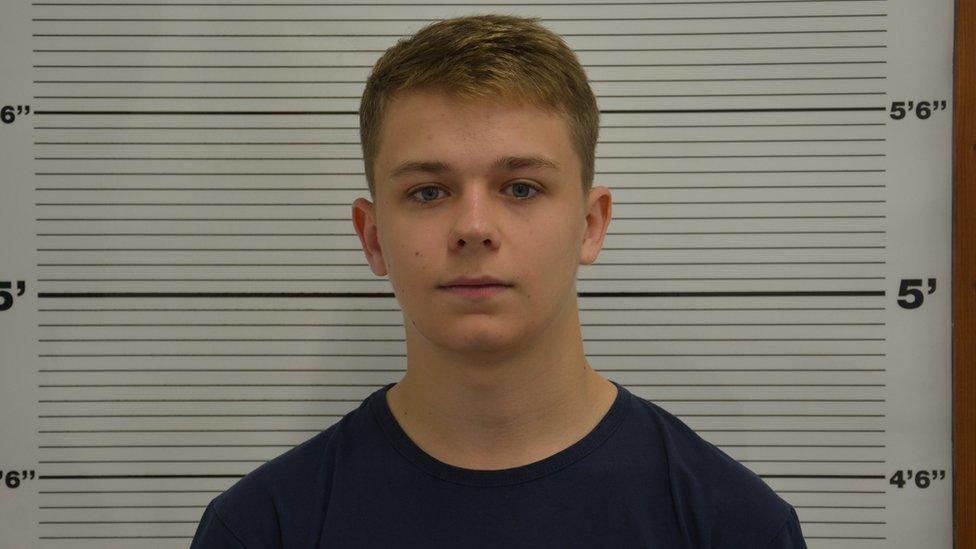How did a boy from Cornwall become the UK's youngest terror offender?
- Published

Weapons belonging to a European Feuerkrieg member
A boy from Cornwall is the youngest person in the UK to commit a terrorism offence. The teenager pleaded guilty to 12 offences and was given a two-year youth rehabilitation order instead.
His actions, carried out from his home in the South West, invite two immediate questions.
How and why?
The how is relatively easy to answer. He downloaded a bomb-making guide, while aged only 13, the first of many such documents he would own or share with others.
The why is more complicated.
He was active in online neo-Nazi networks - spaces where he could mask his age and real identity.
In this way, he was able to lead and recruit others.

Paul Dunleavy was jailed for five years and six months, after a trial at Birmingham Crown Court
After first joining extremist forums in 2018, the teenager followed the digital signposts into more private chat groups occupied by people from around the world.
Within months, he was creating the UK version of a neo-Nazi group called Feuerkrieg Division, which - unknown to him - was led by an even younger boy from Estonia.
FKD, since banned as a terrorist organisation in the UK, is one of several similar groups to first emerge online.
The neo-Nazi ideology promoted by FKD is at the furthest end of the extreme right.
It mocks far right organisations which engage in democratic politics or rallies, saying instead the only way forward is to trigger a race war and societal collapse through terrorist violence.
To this end, it glorifies various killers responsible for racist mass murder and provides practical instructions to its members, such as information on how to make and use weapons.

Police said there was a "real and clear danger of online radicalisation"
In court, the boy's lawyers said he was home-schooled by his grandmother, socially isolated, and emotionally undeveloped after experiencing a "simply dreadful childhood" which resulted in him having no contact with his parents.
But, online, rather than seeming passive and lacking in confidence, he was assertive and confident enough to command others.
As a recruiter for FKD, he would send prospective members a list of questions and then vet them for suitability - he recruited five people in this way, although one was an undercover police officer.
He was more at home online than he was in the real world.
However, there is not a binary division between the internet and normal life.
A series of extreme right-wing terror attacks have been spawned online and carried out with an online audience watching, including the Christchurch attack in New Zealand that killed 51 Muslim worshippers.
FKD, despite having such young leading figures, has generated a series of prosecutions around the world involving older people.
A Lithuanian member jailed for attempting to detonate explosives in the capital city.
In Las Vegas, US, a man who had discussed attacking a synagogue was jailed for possessing bomb parts, external.
In Germany a member convicted of planning violence that posed a threat to the state.
In Kansas, US, a former soldier jailed for distributing instructions for making explosives., external
In the UK, a teenager from Rugby called Paul Dunleavy - who was recruited by the Cornish boy - was jailed last year for planning a terrorist attack.
The very nature of these quickly constructed organisations, which employ encrypted apps to communicate and recruit, allows such disparate individuals to come together.
This danger comes from having such groups of people encouraging one other's worst tendencies.
'Extreme hatred'
Indeed, the culture of groups like FKD is to make people feel guilty and worthless if they do not act on their violent beliefs.
The Cornish boy, for example, praised the Christchurch attacker.
He encouraged members to be "active" and said that "failure of activity will result in expulsion".
He continuously posted violent and hateful material. One document stated that "every resistance group uses assassination (murder) and torture (rape) as weapons against the agents of the State".
Following the boy's sentencing at the Old Bailey, Ch Supt Jim Pearce, from Devon and Cornwall Police, said: "The young age of the offender combined with the extreme hatred displayed and the quick progression of his role within the worldwide extremist group brings into sharp focus the real and clear danger of online radicalisation."
Related topics
- Published8 February 2021

- Published1 February 2021

- Published6 November 2020
